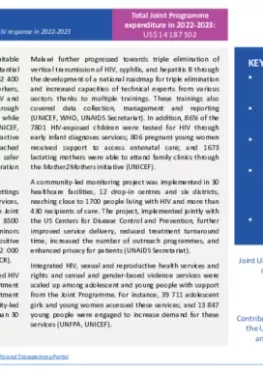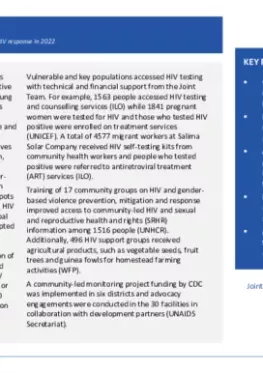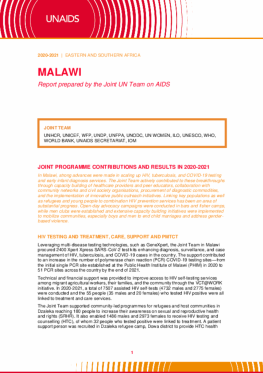|
Malawi
Malawi continued to make progress in expanding equitable and gender-sensitive services for all with substantial contributions from the Joint Programme. A total of 32 400 people in remote communities, agriculture workers, community members and their spouses accessed HIV and healthcare services, including HIV self-testing through various initiatives, such as integrated outreach clinics, while 12 790 condoms were distributed among workers (UNICEF, UNDP, UNFPA, ILO). Radio spots and interactive programmes, including life skills education also reached more than one million people with information on safer sexual practices as part of condom demand generation campaigns (ILO, UNESCO).
Vulnerable and key populations in humanitarian settings accessed HIV prevention, testing and treatment services, thanks to the technical and financial support from the Joint Programme. In Dzaleka refugee camp, more than 8500 people, including refugees, pregnant women and minors accessed HIV testing services and people who tested positive for HIV were linked to treatment services. Over 112 000 male condoms were also distributed in the camp (UNHCR).
Over 51 000 people affected by Cyclone Freddy accessed HIV services; more than 5500 of them were linked to treatment and other services and 3500 were re-enrolled on treatment services (UNICEF, UNAIDS Secretariat). Community-led mobile clinics provided healthcare services to more than 30 000 displaced people (UNICEF).





